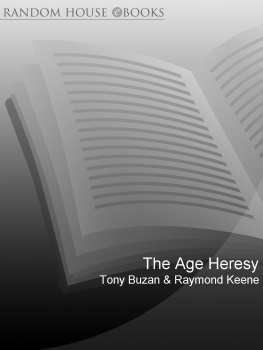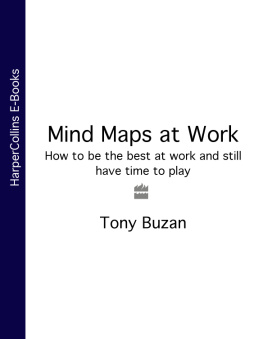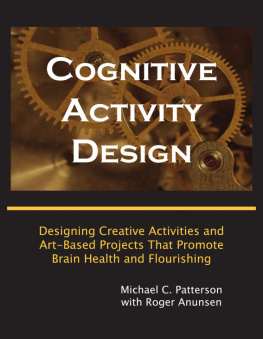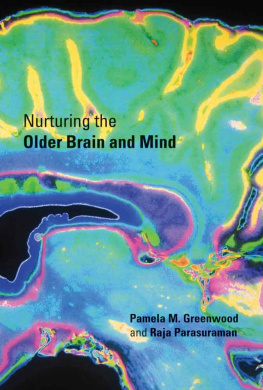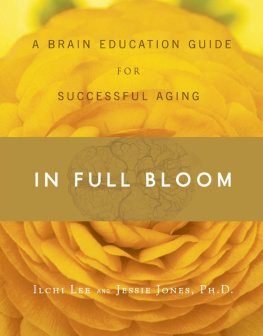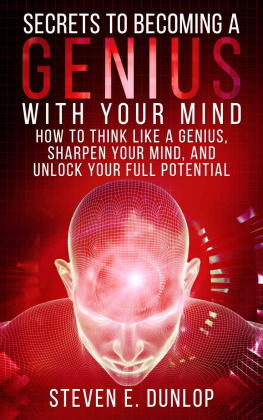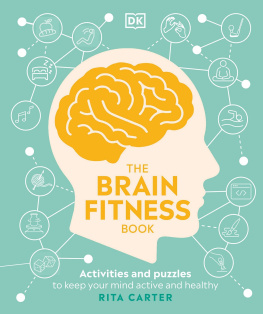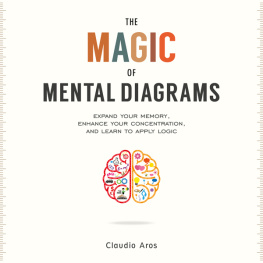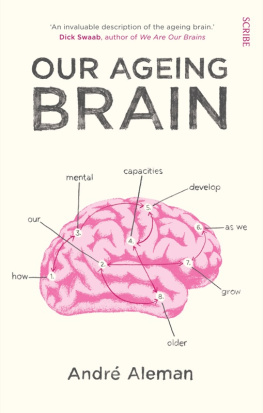C ONTENTS
D EDICATION
T HE AUTHORS DEDICATE THIS BOOK TO J EAN B UZAN, IN HONOUR OF HER INTELLIGENCE, WISDOM, OUTSTANDING PERSONAL EXAMPLE AND ONGOING CONTRIBUTION TO THE FIELD OF GERONTOLOGICAL STUDIES.
BRAIN FLASH
D ESIGN YOUR OWN AGEING PROCESS
Ageing is not identical with fate; individuals play a major role in designing their own process of ageing.
F OREWORD
BY J EAN B UZAN , MA ( BORN 1916)
Y OURE NOT GETTING OLDER, YOURE GETTING BETTER!
P REVAILING D ELUSIONS
Many of us still believe the widespread delusions about our mental capacity declining as we age. Do you still think that your brain cells die off daily throughout your life? That your brain power diminishes as you age, until finally, if you live long enough, you decline into senility?
I did for many years, and if you do, then join a club of billions.
It isnt that the experts deliberately misled us they really believed what they were saying. The story goes that, at a post-mortem years ago, two young doctors remarked that, in general, older peoples brains weighed a little less than those of younger people. That accounts for their failing mental capacities, remarked one. From this reasonable, but unscientific, deduction, the assumption became an accepted fact.
The story may be apocryphal, but the theory that we lose millions of brain cells on a continuing basis has been widely accepted for years. And, to too great an extent, it still is.
C HANGE Y OUR L IFE
The recently discovered truth is far more palatable, and knowing it can change a persons whole life.
First, our minds/intellect/intelligence do not consist of a limited number of brain cells, which die daily and cannot be renewed. The abilities of that incredible 3-lb (1.6-kg) computer in your head are produced by the number of interconnections made between those cells. And that number, dear brain owner, is infinite in its growth potential!
So, you ask, what about the reduction in weight at post-mortems? I would propose that this is due merely to the overall reduction in body fluid as one ages physically. I would also propose that it is not inevitable. After all, how many of us really drink eight glasses of water daily, as we are exhorted to do?
There was another, more serious reason why this delusion was so widely accepted. When IQ testing first began, psychologists carried out studies comparing older and younger groups, and proved that the latter were far more intelligent. QED: mental functioning declines with age.
These studies were known as cross-sectional and were carried out in a very simple fashion in fact too simple! Two groups, one of older people and one of younger, were each given a time-limited IQ test. Since the younger groups consistently performed better than the older groups, the conclusion was that a persons intellectual capacity must, therefore, deteriorate with age.
C HANGE THE T HINKING
Then some bright psychologist tried removing the time limit. The older people took a little longer, but gained appreciably improved results, quite comparable with those of the younger groups. The extra time needed was accounted for by two facts the older people were unfamiliar with the type of tests used, which were commonplace to younger people; and the older peoples brains contained more years of experience and therefore had more information to process when considering the questions.
Y OU A GAINST Y OURSELF
Eventually, psychologists devised the longitudinal type of test, whereby they tested a person annually for many years, comparing the results of the same people against themselves. And guess what? In many ways their results improved over the years.
Think what this exciting new information means. Providing that you believe in yourself, and continue to stimulate your brain, it really is true that Youre not getting older, youre getting better!
J EAN B UZAN
T HE P OWER OF F REE W ILL
Professor David Suzuki is a geneticist at the University of Columbia. He has persuasively argued that although genes do play a fundamental role in determining human character, The really important genes are not the ones which tell us what to do, but the ones that give us the ability to change behaviour in response to our environment.
In other words, there are genes that create what we recognize as free will. He claims that the whole evolution of higher mammals is the story of genes handing over control to the brain, so that people have become more and more capable of behaving independently of their genes.
The contradiction between free will and determinism is one that has run throughout philosophical debate from early times to our own, taking on different forms at different stages. The philosopher Spinoza, for example, in his work Ethics, articulated the argument that there is no such thing as free will and that circumstances are ruled by absolute logical necessity; everything that happens is a manifestation of Gods nature, and it is logically impossible that events should be other than they are. Other philosophers were less happy with this rigidly deterministic framework, one that seems to place us in a clockwork universe, where God releases the spring at the start of time and we all shuffle along predetermined paths, until that spring finally winds down.
A different aspect of this argument is the Nature v. Nurture debate. Are we all little more than a distillation of the genetic material of our forebears, or are we capable of being moulded by the influences to which we are exposed in our own environment? Those of a deterministic inclination would probably argue that the most accurate indicator of human potential is the genetic hand dealt to them at conception, and that there is little that can be done to alter this. Clearly, and particularly in terms of physical development, this is going to be an important factor: if the parents are both below average height, their offspring is unlikely to become a basketball champion. In terms of mental development, however, the brain is capable of assimilating phenomenal amounts of information and, the more it is stimulated, the more it will have the potential to achieve at any age! In , for example, we introduce the exceptionally important TEFCAS model, with its emphasis on your ability to change and adjust.
In this book the authors explore the growing body of information that supports the theory that the brain thrives on stimulation. The more it gets, the more powerfully it evolves at every stage of its development.
P OTENTIAL L EONARDOS
Every human being is a potential Leonardo da Vinci!
Even the great Renaissance sculptor, Michelangelo, described his work as merely freeing the image that already existed inside the block of stone. It is possible to view ongoing human development in the same terms.
If you use your brain as it should be used and the authors map out an appropriate strategy in this book the potential for developing your brain is limitless.
T ONY B UZAN AND R AY K EENE
BRAIN FLASH
V ITAL FACTORS IN AGEING GRACEFULLY
History offers ample instances of brilliance in lifes later years, from Michelangelo to Martha Graham.
The key factors include:


